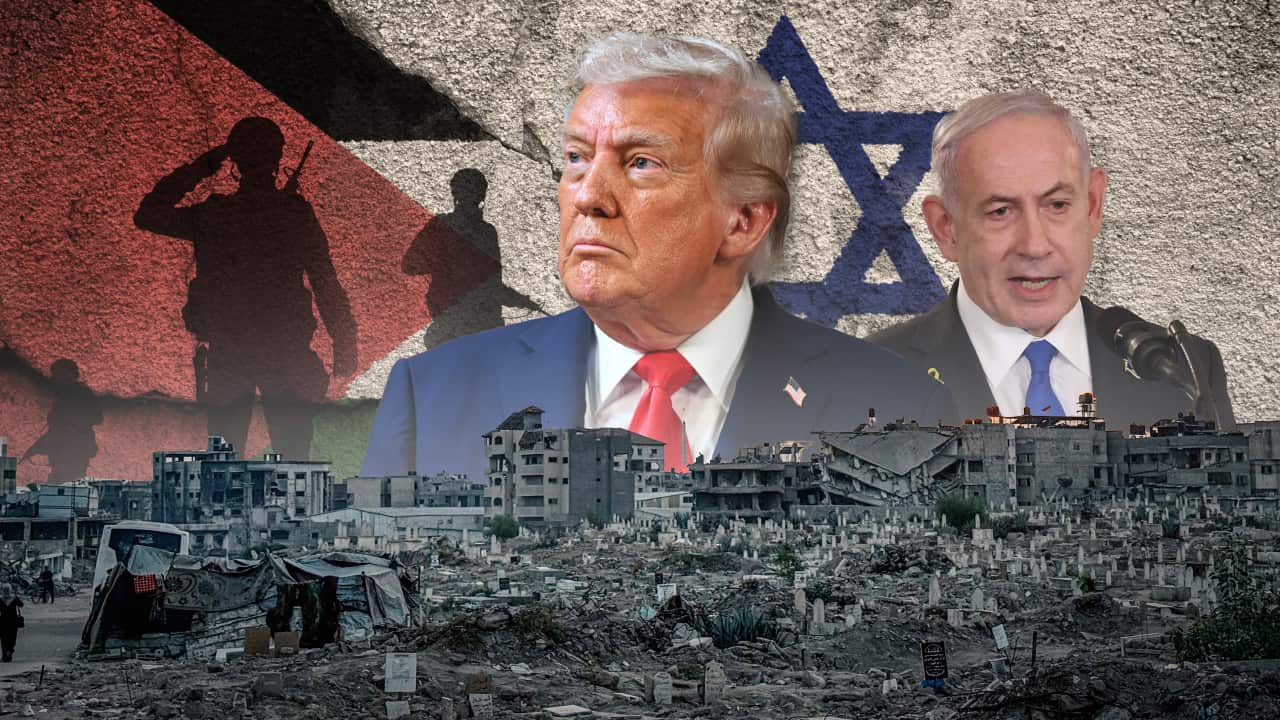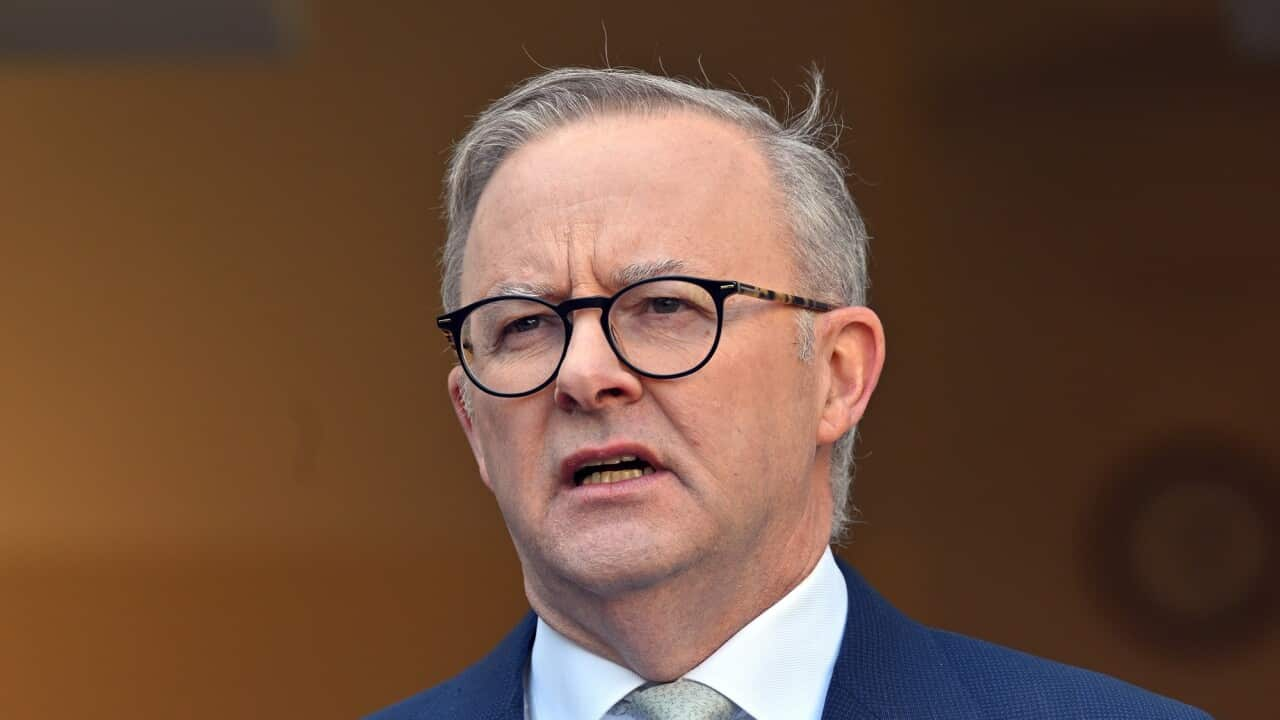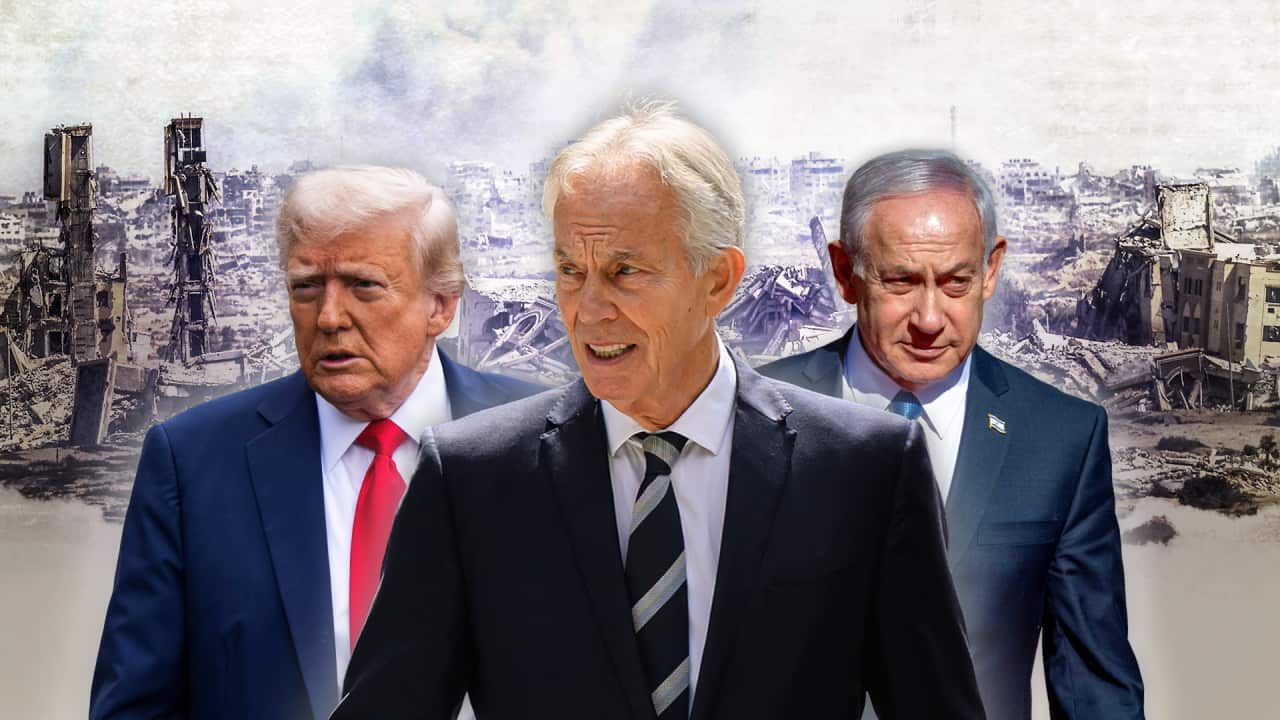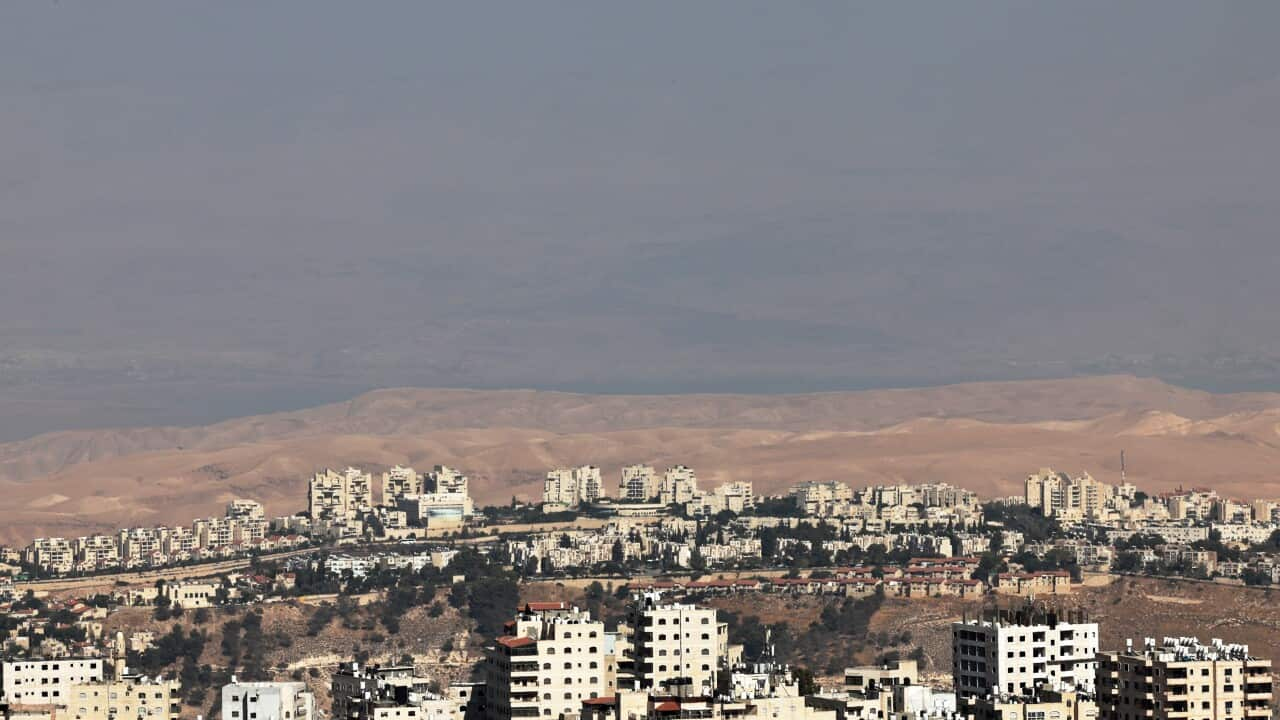A Gaza plan brokered by United States President Donald Trump and Israeli Prime Minister Benjamin Netanyahu could alleviate the humanitarian crisis in the Occupied Palestine Territories, but enduring peace and security will be much harder to achieve.
The White House has released a 20-point plan for ending the nearly two-year war in Gaza, releasing hostages held by Hamas, and outlining the Palestinian enclave's future.
The Palestinian Authority welcomed the announcement and reiterated its commitment to work with the US and partners to reach a comprehensive deal, Palestinian news agency WAFA reported.
But experts have told SBS News that reluctance from Israel and Hamas, a "tone deaf" Donald Trump, and a lack of long-term thinking could be the plan's "ultimate undoing".
What does Hamas think of the plan?
Hamas has been notably absent from the release of the Trump-Netanyahu Gaza plan, raising doubts over whether the group will endorse it.
The 20-point plan, which Trump has also circulated to Arab leaders, calls for a ceasefire, release of hostages by Hamas, disarmament of Hamas, and gradual Israeli withdrawal from Gaza.
"Hamas hasn’t yet received the plan officially, nothing beyond media publication," a Hamas official told Reuters.
However, an official briefed on the talks later stated that Qatar and Egypt shared the document with Hamas, which told mediators that it would review it "in good faith" and then respond.
A team of Hamas mediators was in Qatar as part of negotiations earlier this month when an Israeli strike targeted and killed five of its members in the capital Doha.
Key challenges for Hamas
Eyal Mayroz, a senior lecturer in peace and conflict studies at the University of Sydney, told SBS the plan's conception creates challenges for both Israel and Hamas, but would be more difficult for the latter to accept.
For Hamas to agree, it would not only have to disband and disarm but would also be left vulnerable to "Israeli aggression".
"Disarming or decommissioning its weapons would leave Hamas and its people defenceless, and also go against their aspiration to have any future in Gaza," Mayroz said.
"This is giving up on everything they've got, and they're now going to be at the mercy of Israel and of the international community."
Hamas could also be wary of Israel's military, as "when and how the Israeli military will withdraw" from Gaza remains vague.
But perhaps most problematic for Hamas is the question of Palestinian statehood, which Netanyahu has consistently opposed.
"Statehood for Palestine in the plan is a very underexplained promise," Mayroz said.
"The idea of a future Palestinian state for many people in Israel, especially on the right, is a no-no."
This month at the United Nations General Assembly Australia announced it had formally recognised the "independent and sovereign state of Palestine".
Israel may not follow through
Netanyahu, while praising Trump as a friend of Israel, put some distance between himself and some items in Trump's plan, including the reforms being demanded of the internationally recognised Palestinian Authority and the prospects for eventual Palestinian statehood.
Mayroz said Israel's current endorsement of the plan is "calculated", as Hamas is unlikely to accept it in its current form.
By endorsing the plan, Netanyahu is looking to maintain his relationship with Trump and the US.
He is also under pressure to keep his own government in Israel on side, according to Mayroz.
"Annexation and settlement in Gaza have been a very strong aspiration for the religious nationalist elements in the [Israeli] government," he said.
"The plan would also mean Netanyahu would have to give up on his long-term political goal, the destruction of Hamas."
The proposal would also see Israel release Palestinian prisoners who have been charged with murder and are serving life sentences, which Mayroz said would be an unpopular move among Israelis.
Should Israel and Hamas agree to the plan, there could be short-term benefits for the region, but a "clear gap" in the proposal could diminish its greater goals of rebuilding a Palestinian state, he said.
Lack of Palestinian consultation
Jessica Genauer, a senior lecturer in international relations at Adelaide's Flinders University, told SBS News that the plan doesn't involve Palestinian consultation, which could be its "ultimate undoing".
While the initial steps of the plan, a gradual Israeli withdrawal from Gaza and the release of hostages, could come to fruition, the longer-term goals of the proposal are "more complex".
"I think it's very striking and is a real gap that clearly President Trump has not discussed the plans with Palestinians themselves, or what Palestinians want in terms of how Gaza might be governed," she said.
Genauer said that foreign actors coming into Gaza for 'nation building', the process of restoring governance and self-determination, was not a focus in the plan.
Rather, Trump is focused on domestic pressures in the US and wants to show he can bring an end to the hostilities and is not necessarily prioritising a "lasting peace".
'Tone deaf' approach to Gaza
Genauer said that the US approach to the peace plan, and the possible inclusion of former UK prime minister Tony Blair, could be off-putting for Palestinians.
Under the plan, Blair would be part of an international body, the Board of Peace, which would provide oversight and funding for Gaza’s redevelopment.
Blair's appointment is at odds with his history in the Middle East, as many people see him as a key figure in the 2003 US-led invasion of Iraq, which Genauer said "led to quite a failed attempt at nation-building within Iraq".
"The naming of Tony Blair in this potential peace plan, as one of the only people who is indicated by name, shows that Donald Trump is somewhat tone deaf," she said.
"It's going to be a very, very tricky plan to implement on the ground unless there's a much more concerted effort to involve Palestinians and Palestinian perspectives in what might ultimately happen in the Gaza Strip."
Fixing the underlying problem
To understand what could unfold in Gaza between Hamas and Israel, it's important to look at one of the underlying problems in the region.
Mustafa Barghouti, general secretary of the Palestinian National Initiative, said a key issue in the region is Israeli occupation.
A United Nations commission of inquiry found in 2022 that the Israeli occupation of Palestinian territory was unlawful.
Barghouti said the plan needs to go further to address the occupation.
"Unfortunately, the plan doesn't say a single word, neither about establishing a Palestinian state, nor about ending the Israeli occupation of Palestinian land, which has been the cause even of the seventh of October," he told ABC Radio National on Tuesday.
Israel has bombarded Gaza since Hamas' October 7 2023 attack in which more than 1,200 people, including an estimated 30 children, were killed and over 200 hostages taken, according to the Israeli government.
More than 66,000 people have been killed in Gaza since October 7, according to the health ministry in Gaza.
"There is not a single word about stopping the Israeli expansion of settlements in the West Bank, which is also killing the potential for peace based on a two-state solution. That is the problem," Barghouti added.
Ian Parmeter, a Middle East expert at the ANU Centre of Arab and Islamic Studies, told SBS News that negotiations with Hamas could lead to peace in the region and ensure security for Israel.
While this current plan may not succeed, ongoing negotiations will be critical to peace in the region.
"No enemy in the Middle East is ever completely destroyed. At some point, they do reconstitute their abilities, and they become more of a threat," he said.
"The only way to resolve problems in the Middle East is through negotiation, and it was through negotiation that Israel was able to make peace with Egypt [in 1979], which was a remarkable achievement.
"So, it's negotiation which will create security for Israel, not further violence."




